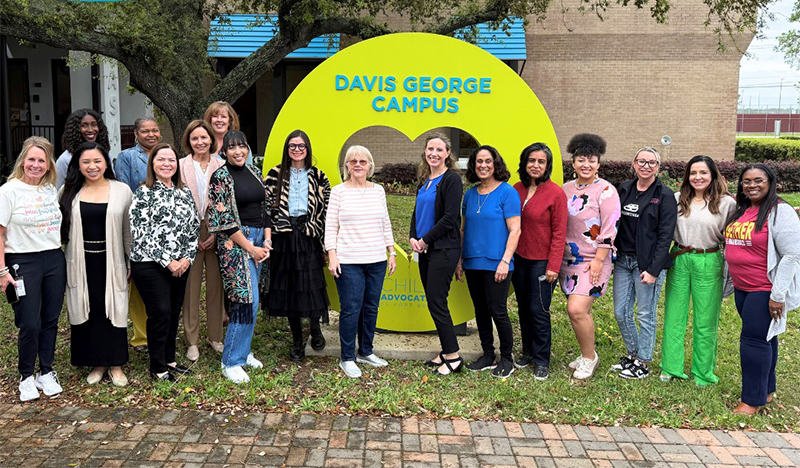
Texas Bar Foundation Grant Fuels Trauma-Informed Advocacy for Child Abuse Victims in Fort Bend County
In a powerful step toward improving justice for Texas' most vulnerable children, the Texas Bar Foundation has awarded a grant to Child Advocates of Fort Bend (CAFB) to further trauma-informed advocacy and healing for young victims of abuse and neglect. The funding bolsters a collaborative, county-wide approach that prioritizes trust, connection, and resilience for children who often face long-lasting emotional and developmental hurdles due to trauma.
Building Resilience Through Trauma-Informed Advocacy
Child abuse is often referred to as the “silent epidemic,” with ripple effects that extend far beyond individual victims. In 2023 alone, 58,120 confirmed abuse cases were reported in Texas, including 4,008 in Fort Bend County, according to CAFB. These staggering figures highlight the urgent need for both public awareness and professional training to handle trauma with informed care and compassion.
Many of these children navigate complex systems — from schools and the courts to child welfare and juvenile justice agencies — often encountering professionals who may not fully understand the lasting effects of trauma. Trauma-informed care, grounded in Trust-Based Relational Intervention® (TBRI), seeks to change that. Developed by the Karyn Purvis Institute of Child Development at Texas Christian University, TBRI is a research-backed model that helps children heal through trust, attachment, and understanding.
The Fort Bend County TBRI® Collaborative
Established in August 2021, the Fort Bend County TBRI® Collaborative unites public and private sector professionals — all trained as TBRI® Practitioners — to improve care for children affected by abuse, neglect, and adversity. In 2024, CAFB became the lead agency spearheading the county’s TBRI® training initiative, offering free training to the community in an effort to deepen trauma awareness and care throughout the region.
Mobile Sidebar Ad
This initiative not only educates frontline professionals but also aims to build a trauma-informed community where healing can begin the moment a child enters the system.
“It is critical to understand how trauma impacts child development and, furthermore, how to work with children who have been abused to help them heal from their trauma and return to a healthy developmental trajectory in which they can thrive,” said Metoyer Martin, Senior Director of Strategic Programs and Services at CAFB.
Texas Bar Foundation’s Impact
The Texas Bar Foundation — the nation’s largest charitably-funded bar foundation, with more than $29 million awarded in grants since 1965 — has a longstanding history of supporting justice initiatives that uplift underserved populations. Its recent funding for CAFB helped support the “Building Resilient and Trauma-Informed Communities”conference held at University of Houston–Sugar Land, attended by over 180 professionals including juvenile justice attorneys and staff from the Fort Bend County District and County Attorney’s Offices.
“The Texas Bar Foundation has been a supporter of justice initiatives for youth served by CAFB and recently provided funding toward our 2-day conference,” Martin noted. “By helping build an understanding of trauma, the barriers it imposes, and strategies to work with children who have experienced trauma, we can help transform our community to be collectively more trauma informed.”
Mobile Sidebar Ad
Healing the Hurt: What CAFB Does
Located in Rosenberg, CAFB provides a continuum of services to child victims through its Children’s Advocacy Center, Court Appointed Special Advocates (CASA) program, and community engagement initiatives. The organization advocates on behalf of children in both criminal and civil courts, serving as the Guardian ad Litem in foster care cases and working to ensure that children’s best interests are upheld.
With over 200 trained volunteer advocates, CAFB directly supports more than 400 children each month, and has helped over 25,000 children since opening its doors in 1991.
Know the Signs, Break the Silence
Raising community awareness is critical in the fight against child abuse. Common signs of physical abuse include unexplained bruises, bite marks, or fear of adults, while neglect may present as extreme hunger, poor hygiene, or lack of supervision. Signs of sexual abuse may include age-inappropriate sexual knowledge, self-injurious behaviors, or recurring infections.
Community members are encouraged to learn about abuse, recognize symptoms, and report suspected incidents. The first step to ending child abuse is knowledge — followed by action. If you or someone you know is being abused, call the Texas Abuse Hotline provided by the Department of Family and Protective Services at 1-800-252-5400.
“Together, we can reduce the incidence of child abuse, help children who have been abused heal and thrive, and prevent other children from becoming victims,” said Martin.
For more information or to get involved with Child Advocates of Fort Bend, contact Volunteer Services at 281-344-5123 or jbrown@cafb.org, or visit cafb.org.
 Tiffany Krenek has been on the My Neighborhood News team since August 2021. She is passionate about curating and sharing content that enriches the lives of our readers in a personal, meaningful way. A loving mother and wife, Tiffany and her family live in the West Houston/Cypress region.
Tiffany Krenek has been on the My Neighborhood News team since August 2021. She is passionate about curating and sharing content that enriches the lives of our readers in a personal, meaningful way. A loving mother and wife, Tiffany and her family live in the West Houston/Cypress region.







